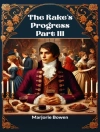After the Lebanese Civil War, many Lebanese novelists committed themselves to building a 'memory for the future.’ What resulted was a vital contribution to the legacy of contemporary Arabic literature. Through interviews, literary analysis, and the lens of trauma studies, Lang sheds light on what it means to remember through post-war literature.
Spis treści
Introduction
PART I: THE LEBANESE LITERARY FIELD
1. Newspapers, Prizes and Politics: The Field’s Institutions and the Global and Regional Context
2. What Makes a Good Novel in Lebanon? The Values of the Field
PART II: 'WE’RE ALL IN THE DARK’ – THE FIRST GENERATION OF (POST-) WAR AUTHORS
3. The Civil War Novel and the Break with Tradition
4. Revolutionaries Turned Writers: A Secular Left-Wing Habitus
5. Destruction and Deconstruction: Forms of Literary Remembering
PART III: GHOSTS IN THE ARCHIVE – THE SECOND GENERATION OF POSTWAR AUTHORS
6. The Civil War Novel as Gateway to the Literary Field
7. Humanist Commitment: A New Habitus
8. Archive, Trauma and Reconstruction: New Forms of Literary Remembering
Conclusion: Whose Truth, Whose Power?
Appendix A: List of Authors
Appendix B: List of Novels
O autorze
Felix Lang is a Postdoctoral Research Fellow in the Department of Arabic Literature and Culture at the University of Marburg, Germany.












